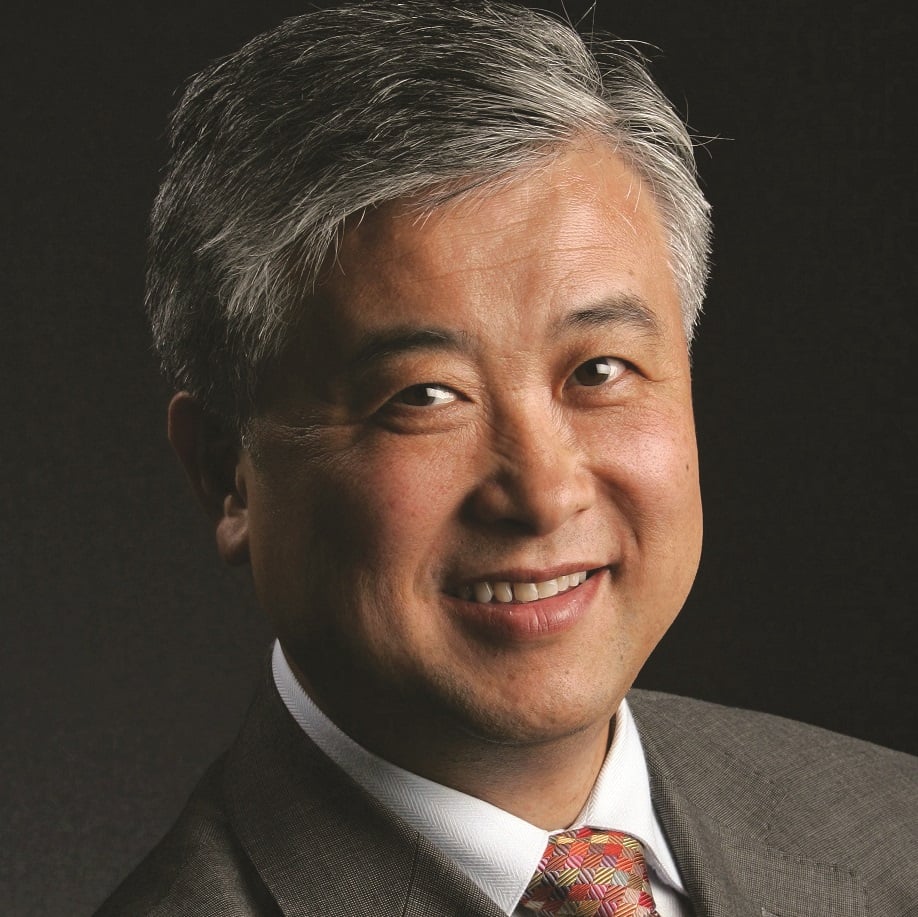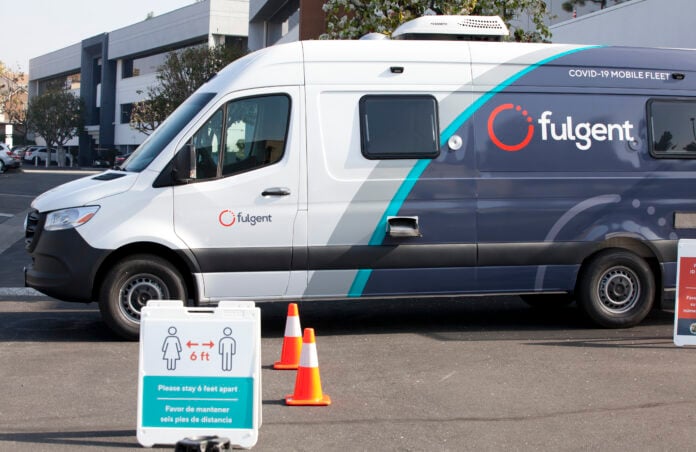This article has been updated from its original version.
For El Monte-based clinical diagnostic testing company Fulgent Genetics Inc., the Covid testing surge that catapulted the company from $32 million in annual revenue to the doorstep of $1 billion in just two years has now all but ended.
In its second-quarter earnings report released earlier this month, Covid testing accounted for less than $1 million in revenue for Fulgent, down from $128 million for the same quarter two years ago.
Now the company is transitioning to a diverse platform of clinical diagnostics and drug development business lines, using some of the cash left over from the Covid testing bonanza to fuel the shift. And it’s a much larger company than before the pandemic hit.

“We’re now a $260 million laboratory business, as opposed to the tiny $30 million genetic testing business we were pre-pandemic,” said Brandon Perthuis, Fulgent’s chief commercial officer. “We’ve grown non-Covid revenue eight-fold.”
String of losses
During the initial phases of the Covid pandemic, Fulgent entered the Covid test analysis market by successfully bidding on lab analysis contracts run by the Los Angeles County health department. Fulgent then sought – and won – a series of multimillion-dollar lab analysis contracts including from the New York City public school system.
So much work had come in that the company temporarily leased huge lab space in the Houston area to handle the increased test volume.
But last year, as the Covid pandemic subsided and home test kits became widely available, the test analysis contracts began drying up and attention turned to Fulgent’s post-Covid strategy.

The transition from the Covid testing juggernaut has had some hiccups. One of those is Fulgent’s income statement: the company has reported three consecutive quarters of losses totaling $50 million. A combination of factors is behind the losses, including recent acquisitions and a plunge in Covid testing revenue that has outstripped the company’s cost-cutting efforts.
Investors didn’t take kindly to Fulgent’s earnings report earlier this month showing yet another quarter of red ink. They sent shares down 15% to $33.90 in the two trading sessions following the Aug. 4 pre-market earnings release. The share price has since hovered around that lower level.
In his interview with the Business Journal, Perthuis said the company hopes to return to profitability “within the next year or two.”
But his eye was firmly fixed on the longer-term picture.
“From the time of the IPO (in 2016) until Covid, we were focused on the rare-disease market, especially pediatric rare-disease market,” Perthius said. “But we realized our platform could be used for much, much more.
“We’ve launched thousands of new tests across all areas of genomic health care,” he added.
Buying spree
Many of these new tests have been made possible through acquisitions.
Two years ago, as Fulgent was raking in money from large-scale Covid testing contracts with public agencies, the company bought CSI Laboratories, a cancer diagnostic clinical lab headquartered in Alpharetta, Georgia, for a reported $53 million. Fulgent’s aim was to expand its molecular diagnostic and cancer testing capabilities.
Then in April of last year, Fulgent announced it had agreed to buy Irving, Texas-based Inform Diagnostics Inc. from New York private equity firm Avista Capital Partners for $170 million in cash.
At the time, Inform Diagnostics was one of the largest independent pathology laboratories in the United States, providing patient diagnoses in gastrointestinal pathology, dermatopathology and hematopathology, among other diagnostic services. Besides its Irving headquarters, Inform Diagnostics had labs in Boston, New York and Phoenix.
In November, Fulgent Genetics made one of its more unusual acquisitions, spending about $100 million in cash and equity to buy back Fulgent Pharma, a former affiliate that was sold off in 2016. Fulgent Pharma has been developing a targeted cancer therapy drug delivery platform to improve the treatment window for certain cancer drugs.
That latest purchase dovetails with Fulgent Genetics’ newest division, pharma services, that offers its clinical lab testing platform to pharmaceutical companies developing drugs.
“Sometimes pharma companies are looking for next-generation sequencing or other things like spatial biology testing – things that they don’t have in-house capabilities for,” Perthuis said.
So far, the pharma services division accounts for less than 15% of overall revenue, he added.
All of Fulgent’s other business lines involve analyzing test samples from patients.
About 45% of revenue comes from the division it calls precision diagnostics, which comprises the company’s longstanding, pre-pandemic genetic testing service to screen for rare diseases with the newly reinforced cancer-screening unit.
The remaining share of revenue stems from the acquisition of Inform Diagnostics.
“That purchase put us smack in the middle of anatomic pathology lab business – things like gastrointestinal tissue biopsies and dermatology disease,” Perthuis said.
Improving efficiency
In addition to these acquisitions, Fulgent has had to spend money to bring all of its newly acquired labs up to its technological standards. In the second-quarter earnings call with analysts, Perthuis said this has included installing additional sequencers in the labs, “allowing us to additionally expand our capacity and lower the cost of exome and genome sequencing.”
And the company is starting a national rollout of its oncology screening services. Perthuis said in the earnings call that the company has placed a small number of representatives in strategic locations across the nation with an eye toward growing that presence.
“We are trying to be a one-stop shop for community oncologists and hospital pathologists,” he said.
Faced with all these additional investments and expenditures, Fulgent has taken some cost-cutting steps, including consolidating its two labs in Los Angeles County and moving its headquarters into that one remaining lab facility in El Monte. Also, some of the new technology the company is installing is fully automated, which can translate into labor savings over time. And the company has taken steps to reduce turnaround time for its test analyses, attempting to boost efficiency.
Making the case
Will these steps be enough to convince investors to climb back aboard?
One analyst who follows the company expressed cautious optimism, though he noted that Fulgent is still daunting for some investors to decipher.
“The story is not the simplest and the trajectory not the clearest with (the) Covid unwind substantially complete but one-time items still impacting financials and a slew of end markets being addressed,” said Andrew Cooper, vice president of health care equity research for St. Petersburg, Florida-based Raymond James and Associates.
“In other words, at times it can be hard for investors to cleanly see key factors on both revenues and profitability,” Cooper added.
Nonetheless, Cooper in his report on Fulgent maintained an “outperform” rating.
He noted that Fulgent’s non-Covid revenue for the second quarter came in 10% higher than anticipated, driven by better-than-expected results in its precision diagnostics and pharma services units.
In the longer run, Cooper said that many of the company’s recent investments and expenditures – which he termed “one-time items” – have the potential to increase margins.
Fulgent’s Perthius had a similar take.
“A lot of this (loss) reflects investments being made to lay the foundation for a diversified business that functions as one-stop genetic testing service,” he said.

